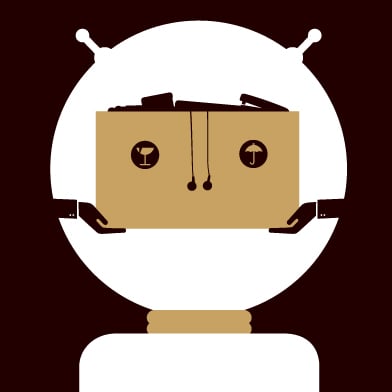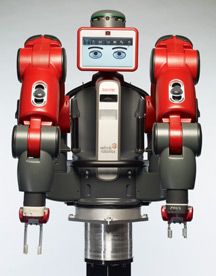Please read up until the “New Economy?” section of the
following link:
Rotman seems to think that we are not
able to keep up with the ever-growing field of technology and that because of
this we have fallen prey to a reduction in the demand for many different types
of human workers. I think that we are losing a lot of jobs to the new
technology, but not quite to the extent that Rotman sees it. We created the
technology knowing what it had the capabilities of doing and most companies
have implemented it because it is, in the long run, cheaper and more efficient.


While the new technology may be destroying certain areas of jobs, it is also
creating some as well; although, they may be higher level jobs than those being
destroyed (for example some created would be those who are actually developing
the technology and some destroyed would be factory workers). While he does show
a significant amount of evidence, I do not think that technology is as
detrimental as it is made out to be in Rotman’s article.
Later on in the article, Rotman mentions some of the different types of robots that are used in different types of work settings. Two of the robots mentioned, Baxter (left) and Kiva (right), are simply meant to do the work that no one else wants to do. Their purpose ranges from retrieving things from a large warehouse setting to smaller, repetitive work. This is a prime example of how new technology is being used to not necessarily take the place of human workers, but to help them and make their jobs easier.


Are there any other reasons behind the fact that new technology is taking the place of many human workers? Also, do you think that technology is growing at a faster rate than we are able to keep up with?
http://www.technologyreview.com/featuredstory/515926/how-technology-is-destroying-jobs/
http://spectrum.ieee.org/robotics/industrial-robots/rethink-robotics-baxter-robot-factory-worker
http://teachthe4ps.com/place/kivas-robot-army-helps-run-warehouses/
http://www.technologyreview.com/featuredstory/515926/how-technology-is-destroying-jobs/
http://spectrum.ieee.org/robotics/industrial-robots/rethink-robotics-baxter-robot-factory-worker
http://teachthe4ps.com/place/kivas-robot-army-helps-run-warehouses/
This comment has been removed by the author.
ReplyDeleteI think technology is also replacing the jobs that no one wants to do or that are difficult and dangerous to perform. For example, factory or field jobs are very demanding and can sometimes occur in dangerous and not optimal environments. Therefore, I view this as a positive thing. Furthermore, I think that technology is also replacing those jobs that are repetitive and that have a large window for error. In these cases, technology is more reliable than humans since the probability for an error or a defect in a product is smaller.
ReplyDeleteGiven the number of people on this planet and the high unemployment rate, even boring, repetitive jobs could mean the difference between a family eating dinner versus going hungry. How could the use of robotics affect the workplace without decreasing the amount of employees? Is it possible to add in these higher forms of technology while possibly increasing the rate of employment? Also, what happens to unskilled laborers in the US? Unfortunately, there are a lot of Americans who are unable to pay for any form of technical school/trade school or community college? Just some thoughts.
ReplyDeleteI agree with Emily about IT not replaces workers, but doing the jobs that no one wants to do. We have evolved as a population, and jobs that we use to do in the past are no longer as popular or as needed today. There are not as many people participating in "blue collar" jobs anymore. This is not only because it is cheaper and more efficient, but because people's interest have changed.
ReplyDelete-Audrey Hyde